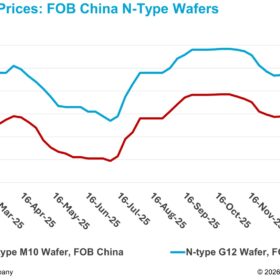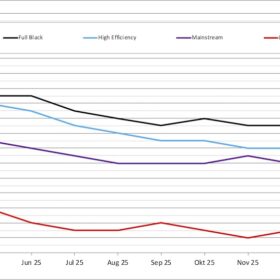A new report released today by Eversource Capital, in collaboration with the Council on Energy, Environment and Water (CEEW) and the Indian Institute of Corporate Affairs (IICA), reveals that nearly all of India’s top 1,000 companies (998) filed sustainability reports in FY24 — a strong signal of growing corporate engagement on climate action. A majority (781) are now disclosing Scope 1 and 2 emissions. However, fewer than one-third (268) have begun reporting value chain (Scope 3) emissions.
Titled “Advancing Corporate Climate Action through Emissions Disclosures in India”, the report is the first of its kind to benchmark India’s emissions disclosure landscape against global leaders such as the EU, UK, South Korea, and California. It finds that nearly India’s top 1,000 listed companies contribute nearly 43% or 1.3 billion tonnes—of the country’s total greenhouse gas emissions. But encouragingly, most now file emissions disclosures.
The study identifies four breakthrough levers to strengthen the credibility and impact of India’s emissions disclosures:
1. Evidence-based coverage expansion: The top 1,000 companies already account for 43% of India’s emissions; expanding reporting mandates to smaller listed firms would raise coverage only marginally (~30%), suggesting the need to instead bring large unlisted companies and financial institutions into the fold.
2. Mandatory assurance to curb data inconsistencies: Current filings show wide variations in emissions data quality. The report recommends a single, assurance-backed disclosure format—an expanded BRSR Core—to replace multiple overlapping templates.
3. Real-time, digital monitoring of emissions: India’s upcoming Carbon Credit Trading Scheme (CCTS) lacks digital monitoring provisions. The study proposes a unified, interoperable digital platform that integrates carbon market and ESG reporting for greater transparency.
4. Capacity building for the next tier of corporates: As global supply chains demand emissions transparency, mid-sized enterprises must prepare to report under BRSR Lite. The report suggests a national capacity-building programme modelled on the EU’s EFRAG initiative to future-proof India’s MSMEs.
Dhanpal Jhaveri, CEO, Eversource Capital, said “India’s corporates are at the frontline of our sustainability transition. Reliable emissions data is the foundation for climate accountability—and for accessing global capital flows into green growth. Transparent disclosures will not only align India with international benchmarks but also build investor confidence in the resilience of our enterprises.”
Dr. Arunabha Ghosh (Founder and CEO, Council on Energy, Environment and Water, and UN Special Envoy for COP30 from South Asia, said “India’s corporate climate action is only as strong as the data behind it. Transparent emissions disclosure frameworks will address greenwashing and help companies tap into new sources of sustainable finance. While the results are encouraging for scope 1 and 2 emissions disclosures, there is ample potential for reporting quality to improve. Systematic, consistent and accurate disclosures can be a source of bottom-up data on emissions, which can enable evidence-based corporate transition planning.”
Gyaneshwar Kumar Singh, DG-CEO, IICA, said “India’s disclosure ecosystem stands at an inflection point, moving from compliance to credibility. The findings reaffirm that while 99.8% of mandated companies file BRSR, the future lies in the quality, assurance, and digital integrity of that data. Our goal is not to expand reporting for its own sake, but to build an interoperable, evidence-based system that inspires investor confidence and drives national climate ambition. IICA remains deeply committed to enabling this transformation through research, capacity building, and partnerships that make India’s corporate climate disclosures truly world-class.”
By aligning emissions reporting with global best practices and integrating digital monitoring, the report envisions a unified, high-integrity disclosure ecosystem for India—one that enhances corporate accountability, attracts sustainable investment, and supports the nation’s pathway to net zero. It calls for collaboration between regulators, investors, and businesses to turn emissions data into a strategic driver of competitiveness and climate leadership.
The full report is available on https://bit.ly/4oe79M2
About Eversource Capital:
Eversource Capital mobilises capital at scale to drive large-scale sustainability solutions for a more resilient economy. The first fund has a proven track record of building and scaling transformative platforms across three key themes: electric mobility, renewable energy, and resource efficiency. Eversource has the largest team of high performing professionals in India focused on delivering stronger financial performance while simultaneously advancing sustainability goals. ESG principles are deeply integrated into our investment process, underpinned by a strong culture of value creation and a commitment to fostering inclusive economic growth.





